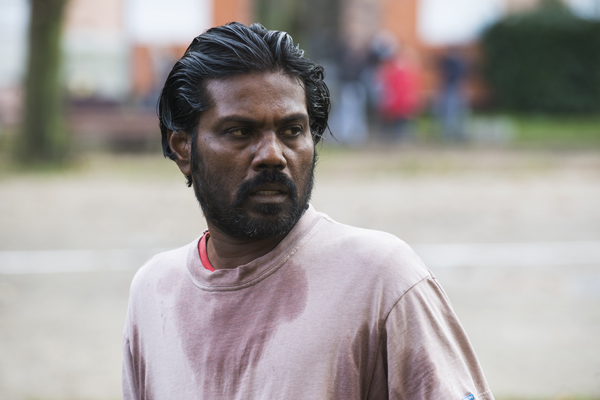![]() Jacques Audiard’s moody heartbreaker, the winner of the Cannes Palme d’Or last year, daringly places a rough-and-ready, documentary-ish shooting style alongside confident, startling artistry. That’s just one example of the opposites pitted against each other in the film: tender human connections with shocking violence. A faith in goodness with a thirst for revenge. Intellect and visceral thrills. It takes an audacious filmmaker to get such conflicting styles and moral beliefs to work together. In Dheepan, they mostly do, and even when they don’t, you can forgive and even admire Audiard for daring to try.
Jacques Audiard’s moody heartbreaker, the winner of the Cannes Palme d’Or last year, daringly places a rough-and-ready, documentary-ish shooting style alongside confident, startling artistry. That’s just one example of the opposites pitted against each other in the film: tender human connections with shocking violence. A faith in goodness with a thirst for revenge. Intellect and visceral thrills. It takes an audacious filmmaker to get such conflicting styles and moral beliefs to work together. In Dheepan, they mostly do, and even when they don’t, you can forgive and even admire Audiard for daring to try.
The movie kicks off with a fast-moving sequence, in which a hardened fighter in Sri Lanka’s civil war (Antonythasan Jesuthasan) finds himself on the losing side and on the run. Intercut with his ordeals, a young woman named Yalini (Kalieaswari Srinivasan) prowls a refugee camp, zeroing in on a nine-year-old girl, Illayaal (Claudine Vinasithamby), whom she takes off a family’s hands in a swift, brutal transaction. Now armed with a dead man’s passport, the soldier poses as “Dheepan” and as Yalini’s husband and the father of the child. These three strangers, hurled together by war and lies, are not yet a family but have to learn to act like one in order to emigrate–and survive.
After making their way to France, the three find themselves marooned in a crumbling exurban housing project overrun by drug pushers and gangsters. In this hellhole, moments of warmth and surprising beauty offer precious rays of hope. Audiard (Rust and Bone) stays unflaggingly interested in his characters, who unfold with fascinating complexity as they adapt to their new lives. Capable Dheepan, a man of war, yearns for peace and for the closeness of a real family, while tight-lipped Yalini acquires self-confidence, a little welcome sexual tension, and even an improved French vocabulary from the housing project’s gangster kingpin, Brahim (Vincent Rottiers, who shares a mesmerizing chemistry with Srinivasan). Yalini can spare intermittent affection for Dheepan, but her admitted lack of maternal feeling makes Illayaal the family’s loser; she’s never given as much love as any child needs, let alone one who has been through so much trauma.
Cinematographer Eponine Momanceau’s widescreen lens goes close up on delicate scenes, like water sensually dripping from skin. Telling details can serve as a sort of code to express the restless ideas coursing through the movie. Harsh, funny riffs on language pinpoint the way speech can liberate or imprison the speaker. Sharp identity shifts create a sense of imbalance as Dheepan changes from warrior to down-at-his-luck scrounger and somewhere back again. And wrenching scenes of the little girl attempting to fit in at home and at school soberly imply that no matter what the surrounding intentions, war turns some lives into collateral damage long after the battle is over.
Tension and violence gradually build between Dheepan and the lowlifes of the project. Inevitably, the film escalates into a drawn-out battle with blazing guns, a reminder of the bloody-mindedness that informed the film back at the very beginning But along the way the film has lightened its load with unexpected humor and inspired music choices, ranging from offbeat pop to deep choral chants. Roiling on the surface, deeply calm inside, Dheepan ends with a surreal, sunny coda that stays true to this beguiling film’s interior logic.







Leave A Comment